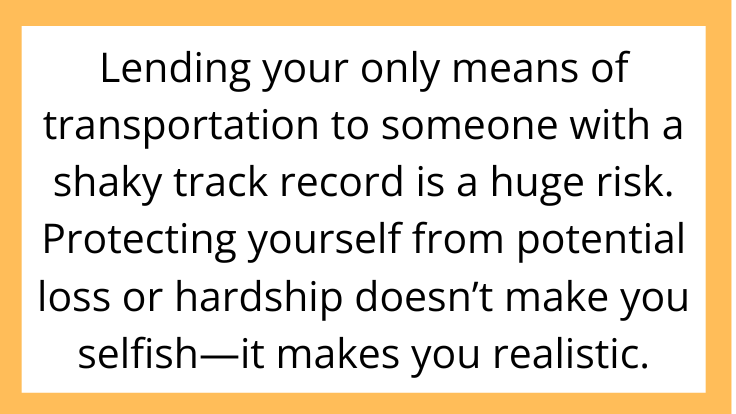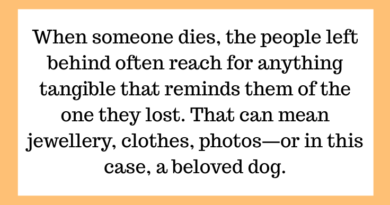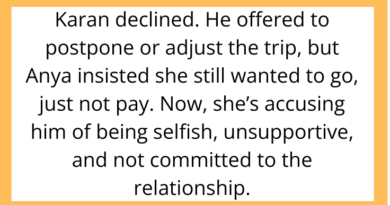AITAH for Not Wanting to Lend My Car to My Brother Even Though He’s in a Tough Spot?
Sometimes helping family feels like the right thing to do—until it collides with your own boundaries. A recent r/AITAH post sparked debate after one user shared their story of refusing to let their brother borrow their car, despite the brother facing serious financial struggles.
This scenario brought up big questions about generosity, self-preservation, and when it’s okay to say no to someone you care about. Let’s break down the details, look at both sides, and explore how to set limits without feeling like the bad person.
The Scenario: Family Pressure Meets Personal Responsibility
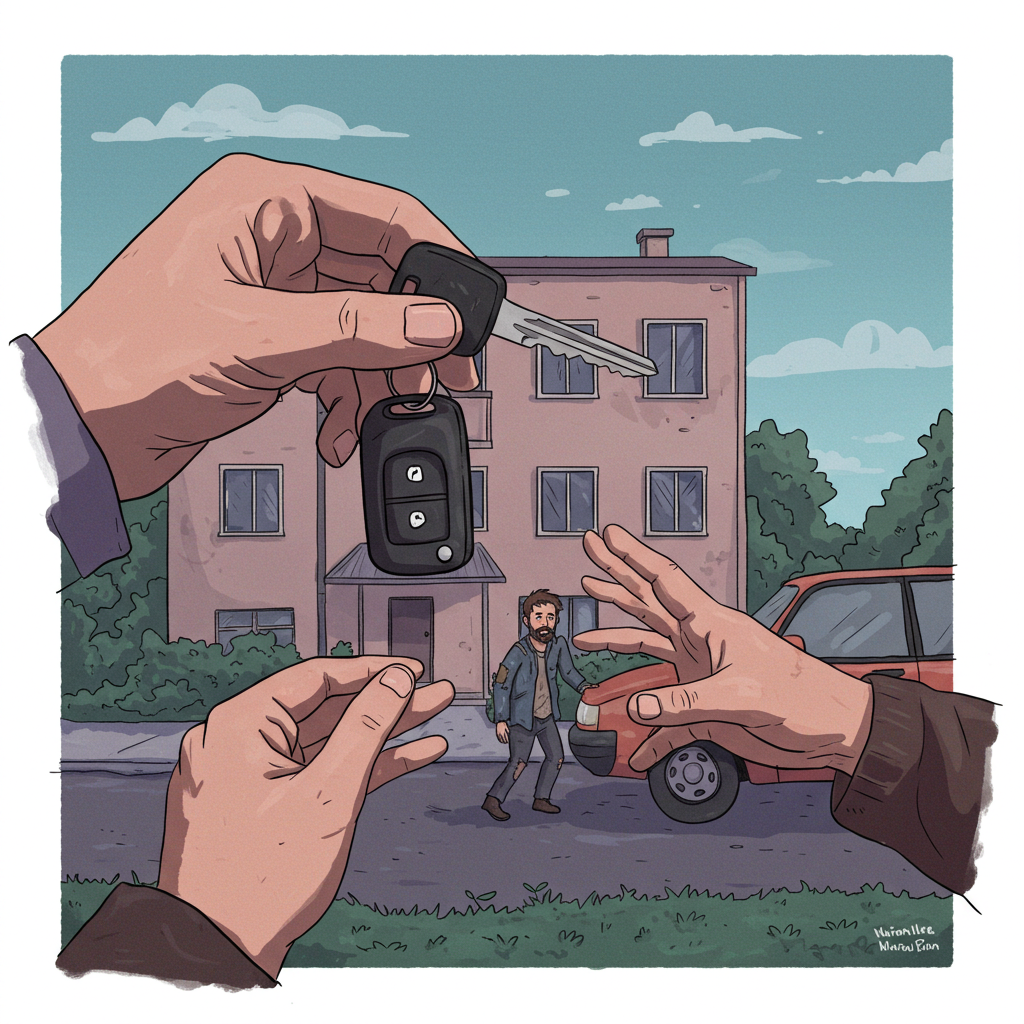
The original poster (OP) explained that their brother had recently lost his job and was trying to pick up gig work to make ends meet. Without reliable transportation, he was at risk of falling behind on bills and losing his apartment.
Knowing OP had a dependable car, he asked if he could borrow it “just for a few weeks.” OP immediately felt uneasy. In the past, the brother had returned borrowed items damaged or late and rarely apologized. The car was OP’s only way to get to work and run errands.
When OP refused, the brother accused them of being selfish and uncaring. Other family members piled on, suggesting OP’s refusal was cruel given the circumstances.
Is Protecting Your Property Selfish?
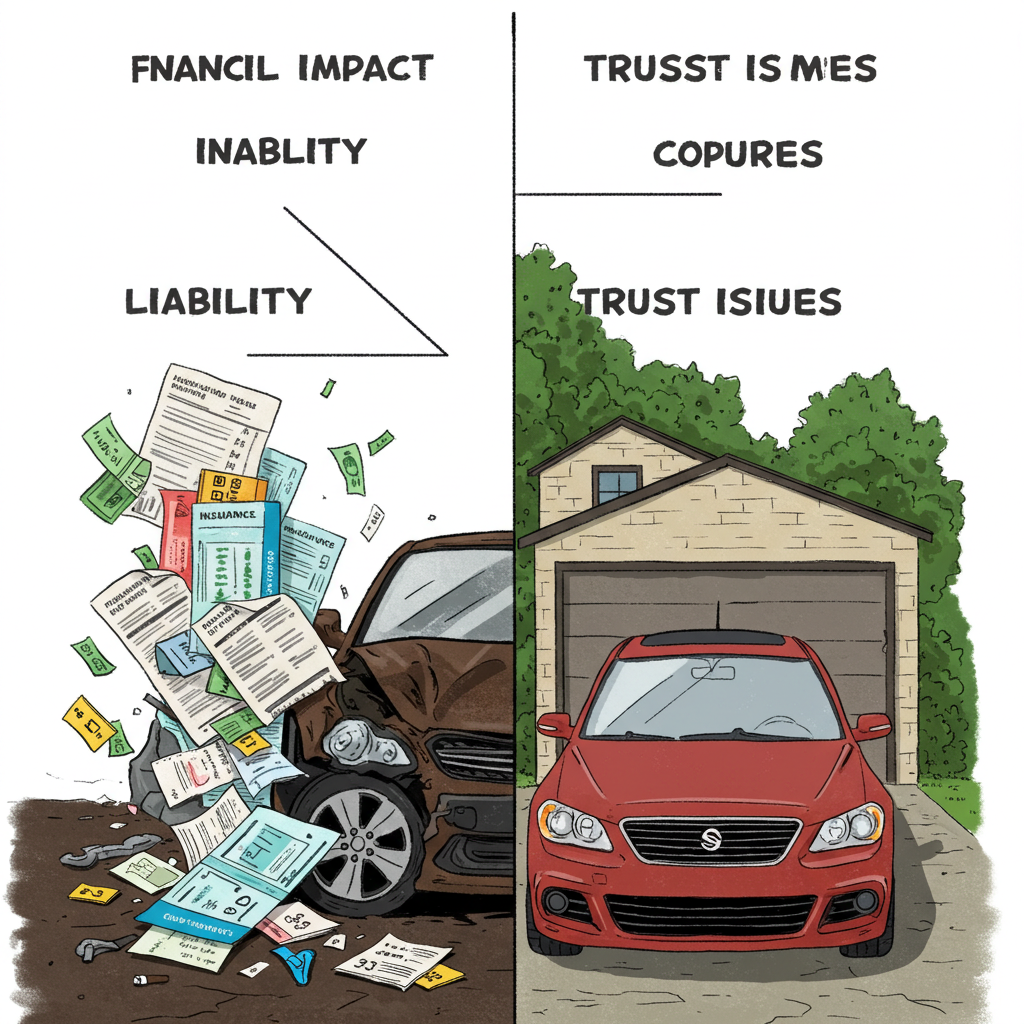
Many commenters agreed OP was justified. Lending a vehicle isn’t the same as loaning twenty bucks—it comes with real risks:
-
Liability: If your car is damaged in an accident, you’re responsible, regardless of who was driving.
-
Financial impact: Repairs, insurance rate hikes, or loss of the vehicle could cost thousands.
-
Trust issues: A track record of disrespecting borrowed property raises red flags.
Just because someone is family doesn’t mean you owe them access to your possessions—especially when their past behavior suggests they may not be careful.
How to Say No Without Guilt
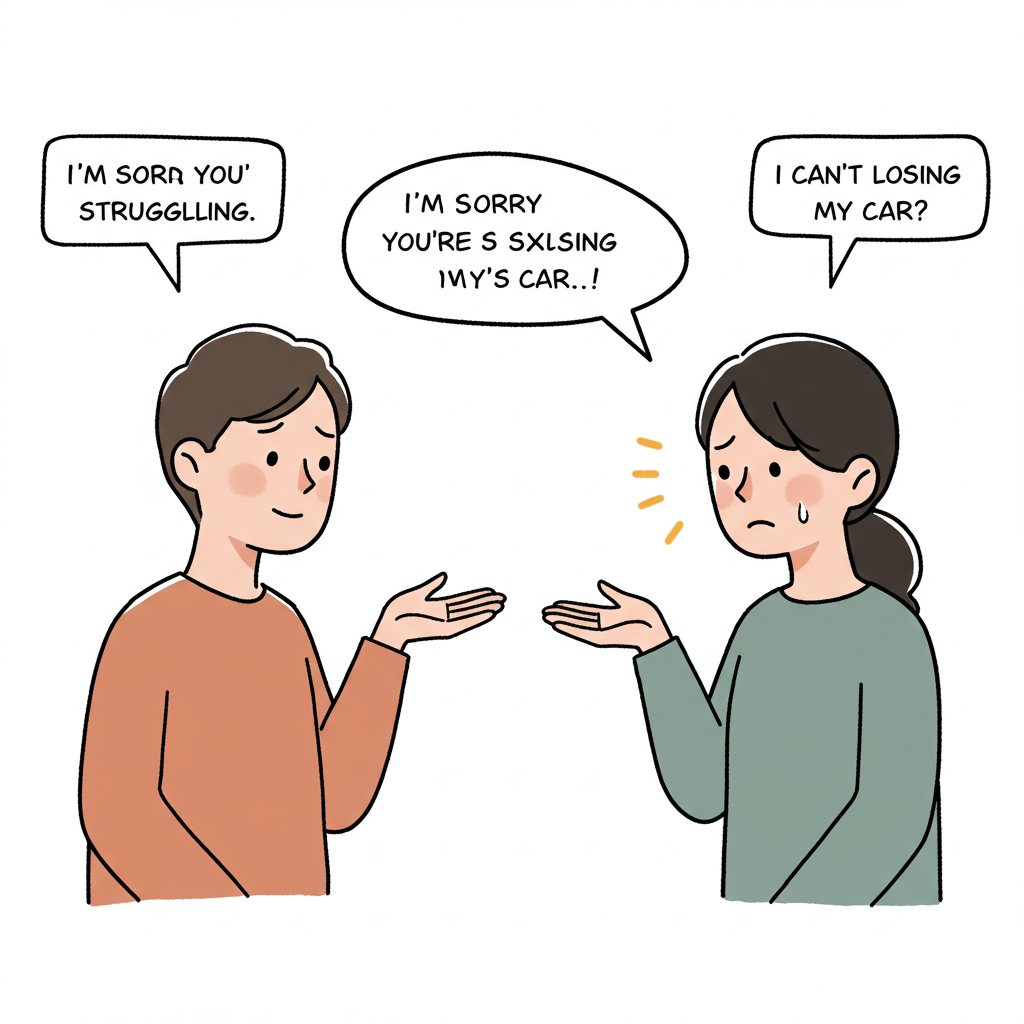
Refusing a family member in crisis is painful, but it doesn’t have to be heartless. If you find yourself in this position, here are a few ways to approach it:
-
Express empathy: Acknowledge their struggle sincerely. “I’m so sorry you’re going through this.”
-
Explain clearly: Be direct about why you’re saying no. “I’m not comfortable lending my car because I can’t risk losing it.”
-
Offer alternatives: Suggest other options, like helping them look into rental programs, rideshare services, or public assistance.
-
Stay calm and consistent: Guilt-tripping may follow, but standing by your boundary is important.
Why Family May React Strongly

Many families grow up with the idea that resources should always be shared. When you opt out, people can take it personally. Common reactions include:
-
“We’re supposed to look out for each other.”
-
“You’d expect help if the roles were reversed.”
-
“You care more about your car than your brother.”
It helps to remember that disagreement over boundaries doesn’t make you unloving—it means you’re weighing your own stability against someone else’s need.
Community Reactions

This post generated heated debate. While some argued that OP should have taken the risk to help, most agreed that lending the car was an unreasonable expectation. The top comments emphasized that compassion doesn’t mean sacrificing your security:
“You can care about someone and still not put yourself in jeopardy.”
“The last time I lent my car to a friend, I lost it to impound fees. Never again.”
The general consensus? NTA—sometimes saying no is the healthiest choice.
Final Thoughts: Boundaries Aren’t Betrayal

Lending your only means of transportation to someone with a shaky track record is a huge risk. Protecting yourself from potential loss or hardship doesn’t make you selfish—it makes you realistic.
If you’re grappling with a similar decision, remember:
-
You’re allowed to set limits, even when others disagree.
-
Boundaries don’t erase love.
-
Clear, compassionate communication is the key to preserving relationships.
